To thine own self be true,
And it must follow, as the night the day,
Thou canst not then be false to any man
— Polonius, in Shakespeare’s Hamlet.
Listening to David Brooks’ program on the pursuit of character brought to mind two relevant stories about the experiences of people I know. Brooks is a columnist for the New York Times, a best-selling author and a speaker. He is a voracious reader who writes often from a first-person perspective. In his writing, Brooks has explored the internal struggles that people experience as they mature. Drawing on his own life as well as famous figures like Dwight Eisenhower, Montaigne, St. Augustine, and others, he explains how individuals are conflicted within themselves. We are weak and strong, blind and sighted, authentic and deceitful, greedy and generous, We struggle to overcome selfishness — the idea that we are the center of the universe. We are not. As a result, we must find ways to reconcile our self-interest with the knowledge that there are others in the world with their own needs, desires, cares and wishes.
It is against this backdrop that Brooks maintains that the greatest virtue is humility and the greatest vice is pride. The people Brooks writes about have reached this moral realization. As a result, they have organized their lives around the desire to overcome their deficiencies and and cultivate character.
Not all people accomplish this feat. The Dunning-Kruger effect helps to explain why. The Dunning-Kruger effect is a psychological bias that occurs when people with limited knowledge in any intellectual or social domain overestimate their knowledge and competence relative to others in some domain in question. Dunning and Kruger use the example of a man who robs a bank with his face uncovered. When captured, he is incredulous. He explains that he smeared lemon juice over his face because it works to hide print on a piece of paper. Armed with this modiucum of knowledge, the burglar believed that the lemon juice ploy should have worked when applied to his face.
We are often blinded by our biases and beliefs. A major cause of our blindness is ego. Without humility, we are blind to what it is we need to learn as we seek to develop in better versions of ourselves. Just as pride is the enemy of humility, ego is the enemy of character.
These thoughts brought to mind the two people I mentioned earlier. One works in my organization; the other works with my wife. We often talk about them over coffee because while the lessons they should have learned seem so obvious, they seem lost on these two individuals. That’s why they fit these ideas set forth by Brooks and Dunning-Kruger.
My colleague was a great teacher. This person received continuous and consistent recognition as such. But ambition soon lured them away from the classroom to managerial and leadership positions. The interesting part of this was that the early positions were contrived (created) to mollify the person and once the contrivance had reached its limits, it was eliminated and then on to the next one. This, in my judgment, was a failure in leadership. It artificially empowered that person’s ego and fed into the Dunning-Kruger effect. May colleague was an excellent teacher but had little experience as an administrator or leader.
The mere fact that a person can study and teach within a discipline does necessarily mean one can practice it effectively. The combination of questionable skills being used in a contrived position predisposed my colleague for failure. My colleague was fired after less than a single year. Both the organizational system and its leadership failed this person. My colleague believed that the fault of the failure could be attributed to a failure in leadership. In part, this is correct – but not for the reasons my colleague with have thought. My colleague was mollified; but mollification does not equal qualification. My colleague has the ability to see the role that he or she played in these events. However, pride and ego will most likely prevent this from occurring.
My wife’s colleague has a different story but also with some overlap. My wife’s colleague worked up in an organization and was finally promoted. However, this only occurred as a result of “gaming the system”. Her colleague would undermine immediate supervisors by being ingratiating the supervisors’ bosses. Pointing out flaws in judgments and inefficiencies in workflow, her colleague assumed the position of being the logical answer to the problem. This ensued over the course of several years and occurred with several immediate supervisors. As a result of financial, logistical, and other circumstances, the colleague received the long-sought for promotion.
The problem is that no one in the situation – including my wife’s colleague herself – recognized the operation of the Peter principle: the colleague had already risen to the highest level of performance that he or she was capable. The colleague spent an inordinate amount of time undermining others to attain a position for which they were unqualified. Over time, failures would keep accumulating; morale in the department dropped. Although employees were able to recognize the problems, the colleague was unable to do so. Again, this situation was in part a failure of leadership from above.
For each of these individuals, ego blinded them to the reality of their circumstances. They overstated their sense of self-worth, esteem, and importance. It is possible that, like many who overestimate their own importance, their actions were born of insecurity – a need to extort validation from others to feel good about themselves. As a result, however, their success occurs because others enable their self-interested actions. People offer compliments when they not deserved. Others follow out of fear of criticizing their superiors. What will happen as these individuals continue in their current positions? Will they fare well for themselves? Will they contribute to the development of others?
Character is the capacity to act in accordance with a system of values and virtues. It arises when we see to cultivate the proper attitude toward pleasure and pain and struggle. Character is an aspect of the self – but it is the moral aspect; it arises as we look at ourselves and try to fashion ourselves into the person we believe we should become. In this way, character is something that keeps ego in check. The person who acts out of ego is the center of his or her own world. She acts so that others will see how impressive, awesome, and wonderful she is. We do not generally wish to be around people who act out of ego.
But beyond being simply unlikeable, people who act out of ego can be dangerous. They may think that they are always in the right – and they want you to know it. The problem with this, of course, is that no one is always right. In this way, ego not only gets in the way of having good relationships, it blinds us from listening to the very people we need in order to learn, develop and make good decisions. Ego is the enemy of our own development.
The antidote to ego is humility. Humility is one of the virtues that define our moral character. Humility is the appreciation that we may not know everything that we think we know – that we are not the most important, smartest, or most valuable person in the room. To have humility is to be aware that we rely on the knowledge and beneficence of others for our own well-being. To have humility is to open ourselves up to others, to be able to learn from their knowledge and experience – and ultimately to develop beyond who we are at the moment.
Humility requires self-knowledge. To be humble is to be able to know myself and to accept myself for who I am, even as I am always trying to improve who I am. It requires the capacity to look at myself with honesty, care and self-compassion. If I do not know everything, well, that simply means that by being open, I can learn more, and become a better self. I need others to help complete me.
Nowhere is humility more important than when a person occupies a position of leadership. A leader is not simply a boss. A boss tells people what to do because out of a sense of unilateral authority. While a good leader needs the feedback and knowledge of others, she must also work to mobilize people and orient them in a shared direction. And so, a good leader can neither adopt an authoritarian nor a laisser-faire attitude. The good leader must have self-knowledge – knowledge about that which she is capable – and knowledge about what she lacks. It is knowing when we have the competence to perform the job before us, and when we need to hand over the job to others. This is the stuff of character – the capacity to act proactively with competence, compassion, and humility.
Brooks suggests that self-conflict is part of everyone’s struggle. Some people will see it, endeavor to change, and develop character along the way. Others will continue until their world comes crashing down and they are forced to confront it. Still others will live out their lives in the bliss of ignorance. The antidote to ignorance is self-knowledge. If we know ourselves – and act on the basis of self-knowledge, we cannot then be false to others.
What will be your story?


If you like what we are doing, please support us in any way that you can.